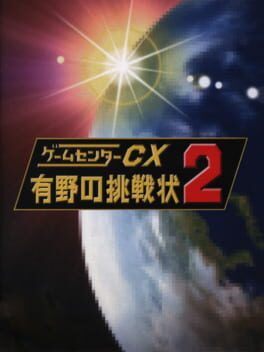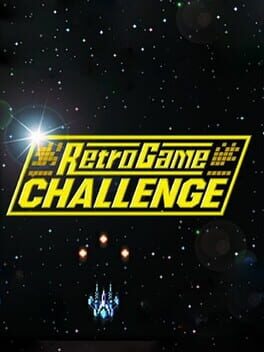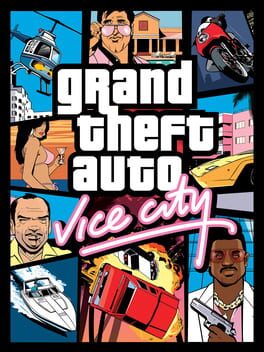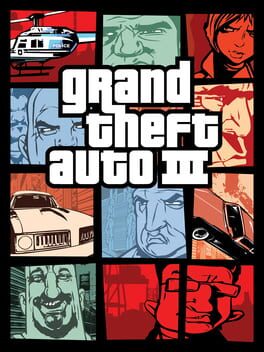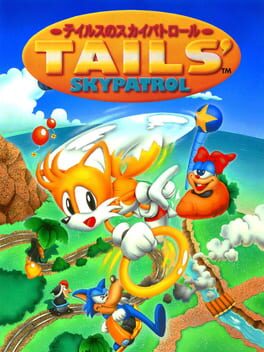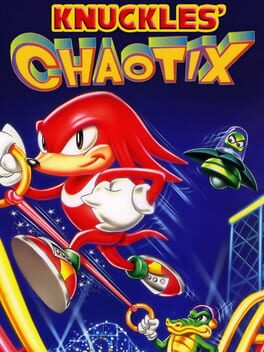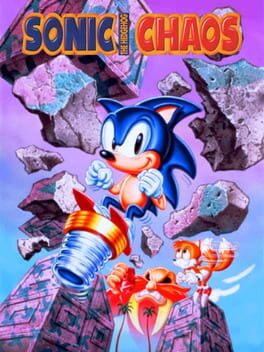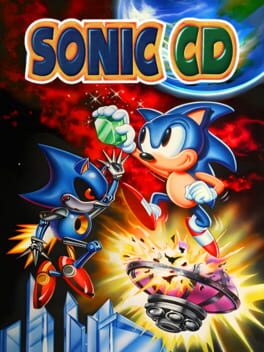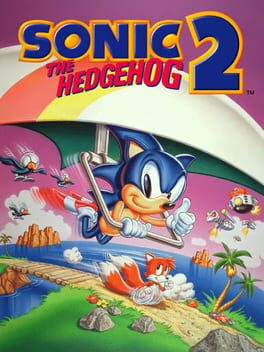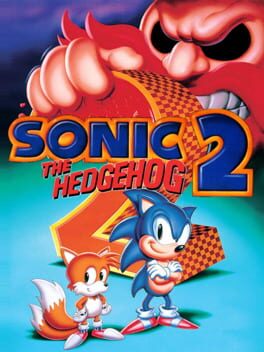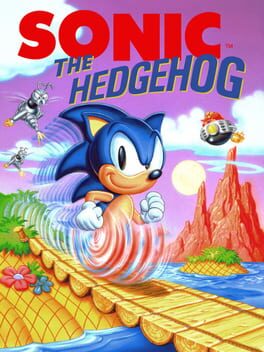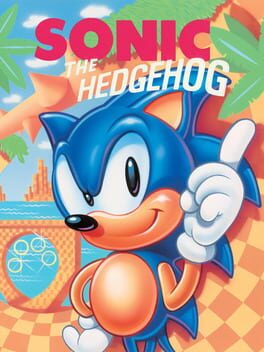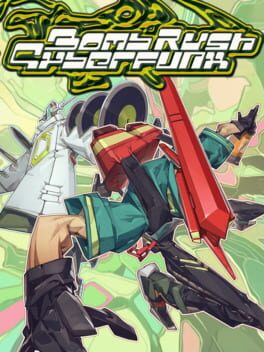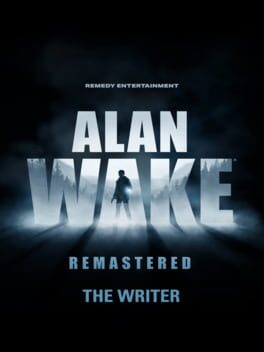dalt
BACKER
the actual games are better than those in the first but i feel like a lot of the charm of the historical aspect has been lost. basically none of the games here are even a little hardware accurate and some of them aren't placed correctly on a real world timeline. triotos is awesome btw could be sold on it's own for sure
2009
This review contains spoilers
how ironic is it that a game about challenging an unjust fate is also one of the most unfairly maligned games i've ever played? final fantasy xiii is not a perfect game, as i'll get into later, but playing it with an open mind and divorced from the zeitgeist of it's release makes it very clear just how hard this game got screwed by circumstances surrounding it. FF13 isn't exactly a bold step away from franchise tradition; playing it you can see echoes of game design lessons from FF10, or story decisions from FF8. what is new here, though, is the game's willingness to allow it's narrative to take control of all aspects of the experience. to me, JRPGs often feel like a genre dependent on abstraction, games that need you to recognize their gaminess and accept that the "game part" isn't supposed to do the same things as the "story part". i don't think this is a bad thing, my favorite franchise of all time is dragon quest, which lives and breathes abstraction, but when playing FF13 i really respected how much they try to avoid this feeling. entering combat is near-immediate and despite the combat being turn-based, it feels incredibly fluid and not contrived at all. exploration is even better at weaving in story. frequently FF13 communicates things going on around the player, rather than simply because of them, which makes the journey you're on feel far more real. characters chatter about, story events go off in the background, monsters fight each other. in interviews, the development team for 13 stated that this was influenced by western shooter games, such as call of duty and halo, which actually really does show. this type of storytelling does call for a more controlled environment for the player to progress through, but 13 doesn't really struggle with this either. criticism of this game often revolves around complaints about it being a "hallway simulator" or "taking 30 hours to get good", but i feel it's important to recognize why these decisions were made. it's not that the team thought players were too stupid to explore, or didn't have time to make bigger environments, it's to further the sense of connection with the story. in FF13, for almost the entire game, you're on the run. cocoon is a world that is actively hostile to your existence, which is unfortunate, because it's also the world you have to save. characters exposit about how open genocide of potentially tainted people has a 90% approval rating among the populace. logically there is absolutely nowhere for you to go but forward; towns would be more dangerous than the wilderness in cocoon. it's no wonder that you're "running down hallways", because a major point the game is trying to make in regards to cocoon is that it's sealed off, shut in, overpopulated, and sheltered from reality. the party is not in this journey by choice, but because their choice has been robbed from them at this point in the game. then there's gran pulse, which is sprawling, empty, and retaken by the wilderness. i think it's no coincidence that not only does the game open up at this point, but the story starts emphasizing the cast's ability to choose a better fate and find hope in themselves. yes, there's no npcs, but the ci'eth stones paint a solid picture of how desolate and barren this world has become. oerba does the same, showing signs of where life once was but isn't anymore. FF13 wants the player to understand the contrast between these two worlds, it wants the player to realize that they solve each other's issues. what better way to communicate these things than through experience? it sounds silly, but i teared up a bit reading all of the flavor text in oerba, and i just don't think those feelings would have been as real if FF13 took a more traditional approach to how it handles it's gameplay. it's not a model for jrpg exploration that i would want in every game, but it's well-justified here.
FF13 also really excels when it comes to combat. i mentioned earlier that combat is fast-paced, but honestly, that's underselling it. FF13 is really the first time ATB felt like it was truly designed around. everything here is dependent on time, to the point that this game has legitimate animation cancels and ATB bar refunds if you get your timing right. it's super fun, especially since you get graded on how quickly you finish combat ala panzer dragoon saga. the larger emphasis on timing and playing fast means that a lot of the attrition-based design elements typical of JRPGs have been done away with. you get healed after every encounter and mana doesn't exist. you might think this makes FF13 an easy game, but you'd be very wrong. instead, this choice invited the development staff to go quite a great deal heavier on the balance compared to previous games, with a much wider variety of valid tactics depending on the enemy. in this game, i feel like i have to really figure out each and every enemy formation, going all-out in every battle. boss fights are noticeably more difficult, of course, but even most bosses are susceptible to status effects and oddball strategies, which is very unusual for final fantasy. it's really impressive to me how much they want you to figure out these little puzzle encounters, and the more controlled progression compliments this aspect of the combat well. paradigms are a pretty cool concept, basically being switchable flexible job classes, but they're nothing too new for the franchise, so i won't get too deep into them. i appreciated the way they're handled in the crystarium, where even once your progression opens up and anyone can do anything, the differences in each character's trees gave reason to focus on one character for a specific role over another. the crystarium also being added to in spurts throughout the game helps the puzzle encounters as well, as the player can't overlevel to get past obstacles, they have to actually learn what they're doing. overall, 13 has my favorite combat in the entire series. it's really excellently designed, and makes me excited to see how it could get iterated upon in the other games.
13 isn't without it's pitfalls, though, as i alluded to at the beginning of the review. pacing is not this game's strong suit, with many plotpoints after chapter 9 (around the halfway point) feeling rushed and a bit haphazardly implemented. barthandelus in particular feels somewhat like a rough draft for a villain, with much of his dialogue and moment-to-moment decisionmaking feeling indecipherable at times. fal'cie are intended to be above human comprehension and extremely manipulative, but it feels as though the game wants to write excuses to make everything he does planned, rather than setting those plans up properly. occasionally it feels as though events are skipped or characters aren't properly explained, as well; many of the secondary characters are lacking in screentime and could have used better introduction to the plot. 13 does a great job of slowburning it's character moments throughout the first half, but with the greater emphasis on player freedom comes a lot of missable cutscenes on pulse, which made me miss the cast. i felt the found family storyline here with the party was very engaging and sweet, but i do understand why many people would be put off by how divided the party is for much of the game. the payoff is very good, and i cared a lot for all of these guys by the end, but i get why the cast is so often a point of criticism.
overall, i think FF13 is really one of the better installments in the franchise. i don't feel that the narrative quite reaches the highs of 8 or 6, and this game certainly will never appeal to everyone, but i found it really engaging all throughout. it's such a beautifully realized and original game, in a way that only final fantasy can really do. hopefully the sequels keep it up!
FF13 also really excels when it comes to combat. i mentioned earlier that combat is fast-paced, but honestly, that's underselling it. FF13 is really the first time ATB felt like it was truly designed around. everything here is dependent on time, to the point that this game has legitimate animation cancels and ATB bar refunds if you get your timing right. it's super fun, especially since you get graded on how quickly you finish combat ala panzer dragoon saga. the larger emphasis on timing and playing fast means that a lot of the attrition-based design elements typical of JRPGs have been done away with. you get healed after every encounter and mana doesn't exist. you might think this makes FF13 an easy game, but you'd be very wrong. instead, this choice invited the development staff to go quite a great deal heavier on the balance compared to previous games, with a much wider variety of valid tactics depending on the enemy. in this game, i feel like i have to really figure out each and every enemy formation, going all-out in every battle. boss fights are noticeably more difficult, of course, but even most bosses are susceptible to status effects and oddball strategies, which is very unusual for final fantasy. it's really impressive to me how much they want you to figure out these little puzzle encounters, and the more controlled progression compliments this aspect of the combat well. paradigms are a pretty cool concept, basically being switchable flexible job classes, but they're nothing too new for the franchise, so i won't get too deep into them. i appreciated the way they're handled in the crystarium, where even once your progression opens up and anyone can do anything, the differences in each character's trees gave reason to focus on one character for a specific role over another. the crystarium also being added to in spurts throughout the game helps the puzzle encounters as well, as the player can't overlevel to get past obstacles, they have to actually learn what they're doing. overall, 13 has my favorite combat in the entire series. it's really excellently designed, and makes me excited to see how it could get iterated upon in the other games.
13 isn't without it's pitfalls, though, as i alluded to at the beginning of the review. pacing is not this game's strong suit, with many plotpoints after chapter 9 (around the halfway point) feeling rushed and a bit haphazardly implemented. barthandelus in particular feels somewhat like a rough draft for a villain, with much of his dialogue and moment-to-moment decisionmaking feeling indecipherable at times. fal'cie are intended to be above human comprehension and extremely manipulative, but it feels as though the game wants to write excuses to make everything he does planned, rather than setting those plans up properly. occasionally it feels as though events are skipped or characters aren't properly explained, as well; many of the secondary characters are lacking in screentime and could have used better introduction to the plot. 13 does a great job of slowburning it's character moments throughout the first half, but with the greater emphasis on player freedom comes a lot of missable cutscenes on pulse, which made me miss the cast. i felt the found family storyline here with the party was very engaging and sweet, but i do understand why many people would be put off by how divided the party is for much of the game. the payoff is very good, and i cared a lot for all of these guys by the end, but i get why the cast is so often a point of criticism.
overall, i think FF13 is really one of the better installments in the franchise. i don't feel that the narrative quite reaches the highs of 8 or 6, and this game certainly will never appeal to everyone, but i found it really engaging all throughout. it's such a beautifully realized and original game, in a way that only final fantasy can really do. hopefully the sequels keep it up!
2007
very cute little experience! not all the games are good (rally king and guadia quest are notably weak) but i don't think the games themselves are really the point. RGC is really mostly about replicating the feel of the famicom era and showing off the history, and it does that stuff very well. it's super fun being able to check magazines for cheat codes, or hearing arino's mom ask if you want snacks when you're paused. the challenge format also mostly keeps these games pretty fresh, with the exception of guadia quest, which definitely goes too long and has most of the pitfalls common in a famicom rpg. there's a real sense that actual time is progressing and developers are getting better with the console here, which i appreciate. definitely worth a look if you find game history interesting at all, or just like charming cute little ds games
grinding out money in the endgame is pretty obnoxious but besides that this is about as good of a sequel to GTA 3 as i could hope for, given the 9 month development time. even the oft-maligned asset missions are more entertaining than a lot of what that game had for missions. i'm not going to lie and pretend that the story of this game is much more than an excuse to do missions, but at least vice city's story is usually pretty entertaining, with characters that feel more like spoofs than gta 3's walking stereotypes. tommy isn't much of a protagonist, but giving these characters someone to bounce off at all is a huge improvement, and allows for some dialogue that is occasionally pretty funny. it feels like rockstar learned from 3's difficulty and tuned the missions to be doable in 2-3 tries this time, which is a nice change of pace. there's still some stinkers on occasion, but nothing nearly as egregious as the worst missions in 3. the radio in this game owns and could carry literally any game. every station is killer (except vrock but whatever that's a matter of personal taste). wave especially just has... almost all of the best new wave hits? like, all i'd add would be maybe some new order or devo. great stuff. i really appreciate how the default radio stations for missions are also somewhat timed to create interesting soundtracks, e.g. billie jean being hard coded to be the first track you hear upon entering vice city. it's a neat touch that definitely makes this game feel more cinematic.
2001
GTA 3 is one of the most influential games of all time, and the natural bridge between the experimental late 90s/early 2000s push for realistic, breathing worlds (as seen in shenmue, majora's mask, driver) and the current model of open-world video games. it's also really frustratingly designed and pretty shallow. the first thing veterans of the franchise will notice when playing GTA 3 is that this game is tough. like, really tough. but the odd thing about the difficulty is that it feels almost unintentional, or at least not fully thought through. very frequently this game will throw you in disadvantageous positions, which is fine, but they're disadvantageous because the lock-on sucks, or because traffic is fucking you over, or because pedestrians spawn in inopportune places. the biggest issue w this game's difficulty, by far, is how random it is. i played this on an emulator with save states at the start of missions, so i didn't have to rebuy all my weapons and trek back across the city, and playing that way makes the completely random traffic spawns very transparent. you can do the same mission 20 times and get fucked over in completely different places for completely different reasons every time, it's just not a great feeling. just for some examples of missions i felt were particularly bad about this; big'n'veiny is excruciating because the traffic will frequently get in the way of magazine drops, espresso 2 go is quite bad because pedestrians will frequently stand in front of the stalls you're meant to destroy and if you slow down for them you can no longer destroy the stalls, trial by fire is based entirely around random pedestrian spawns which means you're at the mercy of rng, so on and so forth. the later games have smarter traffic systems and don't design their missions with timeframes as tight as these, so clearly rockstar learned, but i can't really fathom why they did it this way other than to waste your time and draw out the playtime. it's very funny how the best weapon in this game, by far, is the sniper, not because it does the most damage, but just because it allows you to bypass the frustratingly unclear lock on system. when you're forced to use lock-on for encounters, the game doesn't really feel skill expressive at all, it sort of just feels like you're beating your head against the wall and holding down fire until you win or lose. the only exception i can think of to this would be in the final mission, where you have to strategize a bit about what order to take down gang members in and what pathing to take to do so, but it still doesn't really make the lock-on feel fun, it just makes everything around the shooting feel tighter and more engaging.
when it comes to delivering on a lifelike world with tons of freedom, GTA 3 is a step forward and a step back compared to other games from it's time. yes, you have the typical issues you'd expect to see in an open world game from this era (small map, repeated voice lines, etc), but the actual city itself still feels fairly plausible, even if it is less than 3 square miles in size. there's a lot of thought put into little details here, like the way newspapers fly around, or the fact that some of the stores actually close depending on the day and night cycle. driving also feels like a breeze, i love how the cars feel in this game, and the most fun i had was definitely just going fast and exploring the city. gta 3 doesn't really deliver on freedom in this environment, though. unfortunately in this game there's never a point where you have access to every island and are safe to roam around in them. almost as soon as you get to staunton island, most of portland becomes off-limits because the mafia aggros you and can wipe almost all cars in seconds. as soon as you get to the third island, you're still aggro'd there. i can understand what they were going for, making the underworld of liberty city gradually become more unfriendly as you're forced to cut ties with more of it, but i don't really think there's any good reason why it should be this way still after the campaign has ended. why have all this detail put into the world if i can't sit back and take it in?
also, writing isn't exactly a strong point of gta as a franchise in my experience, but this game has especially weak dialogue and story. the plot more or less doesn't exist until you're almost done with it, for most of the game you're just doing jobs aimlessly until the game sort of tries to throw in a revenge plot at the end. i wouldn't be too disappointed by this aspect if the characters were interesting or the writing was funny, but pretty much all of the characters are stereotypes or stock crime movie characters, and the writing is neither ridiculous enough to play well as satire nor serious enough to be engaging dramatically. the writing feels especially dumb when it can't even bother to be a little accurate about the ethnic groups it's portraying. like, i get that they're trying to be irreverent and satirical, not accurate, but some basic understanding about the difference between japanese and chinese people beyond "honor" would be nice. still cool how unnecessarily star-studded this cast is, though.
btw more gta games should have a classical station, it actually fits the tone really well
when it comes to delivering on a lifelike world with tons of freedom, GTA 3 is a step forward and a step back compared to other games from it's time. yes, you have the typical issues you'd expect to see in an open world game from this era (small map, repeated voice lines, etc), but the actual city itself still feels fairly plausible, even if it is less than 3 square miles in size. there's a lot of thought put into little details here, like the way newspapers fly around, or the fact that some of the stores actually close depending on the day and night cycle. driving also feels like a breeze, i love how the cars feel in this game, and the most fun i had was definitely just going fast and exploring the city. gta 3 doesn't really deliver on freedom in this environment, though. unfortunately in this game there's never a point where you have access to every island and are safe to roam around in them. almost as soon as you get to staunton island, most of portland becomes off-limits because the mafia aggros you and can wipe almost all cars in seconds. as soon as you get to the third island, you're still aggro'd there. i can understand what they were going for, making the underworld of liberty city gradually become more unfriendly as you're forced to cut ties with more of it, but i don't really think there's any good reason why it should be this way still after the campaign has ended. why have all this detail put into the world if i can't sit back and take it in?
also, writing isn't exactly a strong point of gta as a franchise in my experience, but this game has especially weak dialogue and story. the plot more or less doesn't exist until you're almost done with it, for most of the game you're just doing jobs aimlessly until the game sort of tries to throw in a revenge plot at the end. i wouldn't be too disappointed by this aspect if the characters were interesting or the writing was funny, but pretty much all of the characters are stereotypes or stock crime movie characters, and the writing is neither ridiculous enough to play well as satire nor serious enough to be engaging dramatically. the writing feels especially dumb when it can't even bother to be a little accurate about the ethnic groups it's portraying. like, i get that they're trying to be irreverent and satirical, not accurate, but some basic understanding about the difference between japanese and chinese people beyond "honor" would be nice. still cool how unnecessarily star-studded this cast is, though.
btw more gta games should have a classical station, it actually fits the tone really well
1995
pretty cute little shmup, obviously intended for a very young audience. i don't really like the long travel time on the ring projectile, but i think they get a lot of fun little uses out of it in these levels, like flipping switches or hooking onto minecarts. this game ends very very quickly but it's reasonably difficult so i get it. definitely one of the less bad game gear sonic games imo
1995
gorgeous soundtrack, probably the nicest looking pixel art for a sonic game on the genesis, and just absolutely atrocious gameplay. almost everything knuckles chaotix does is for the worse. the stages are massive and vertical, almost like an unholy marriage between sonic 3 and CD, but unlike those games, there's little to nothing in the way of platforming difficulty here, virtually no gimmicks, nothing. enemies are very few and far between as well, and rings are literally everywhere, meaning the difficulty in chaotix is beyond low. the high ring count is cool for a little bit because it makes the special stages more manageable, but you'll be done with those pretty fast, at which point rings no longer serve much of a purpose... because lives don't exist. this is actually a pretty progressive idea for a game from 1995, but in tandem with the level design it makes progression feel pointless and dull. after a while, you realize why the level design is like this; it has to be big because proper use of the tether mechanic (or just picking knuckles or charmy) allows you to basically fly straight through everything otherwise. it has to be empty because level selection is randomized, so they don't want to turn up the difficulty out of nowhere, and they don't want to shock you with gimmicks you may not have been properly introduced to. it is extremely impressive that this game manages to have 5 distinct zones, complete with day and night cycles, that all manage to feel like the exact same sugary slop.
the tether mechanic itself has some cool ideas, but because of the difficulty simply not scaling in this game, you're rarely if ever forced to use it. honestly, even without using stuff like charmy's flying, i would have a lot of difficulty trying to find any situation in which the game achieves something with this mechanic that couldn't be achieved with standard sonic mechanics. yes, you go fast, but sonic games had already mastered speed without feeling like an incoherent, uncontrollable mess. the only real feat chaotix pulls off by comparison is that if you know how the tethering works really well, you can completely trivialize the levels... but the levels are already trivial. the most use the game gets out of the fake co-op is literally in the tutorial.
anyways, the special stages are really nice and probably the best reason to play this game. not the best special stage of this era, sonic 3's is still better, but very solid.
the worst part of this game is that you never truly feel like you're in control of anything. you zoom though empty corridors, but you somehow feel more hands off playing chaotix than you do during the tube sections in traditional sonic games. what a mess.
the tether mechanic itself has some cool ideas, but because of the difficulty simply not scaling in this game, you're rarely if ever forced to use it. honestly, even without using stuff like charmy's flying, i would have a lot of difficulty trying to find any situation in which the game achieves something with this mechanic that couldn't be achieved with standard sonic mechanics. yes, you go fast, but sonic games had already mastered speed without feeling like an incoherent, uncontrollable mess. the only real feat chaotix pulls off by comparison is that if you know how the tethering works really well, you can completely trivialize the levels... but the levels are already trivial. the most use the game gets out of the fake co-op is literally in the tutorial.
anyways, the special stages are really nice and probably the best reason to play this game. not the best special stage of this era, sonic 3's is still better, but very solid.
the worst part of this game is that you never truly feel like you're in control of anything. you zoom though empty corridors, but you somehow feel more hands off playing chaotix than you do during the tube sections in traditional sonic games. what a mess.
1993
honestly i really don't get peoples' complaints with this one?? the time travel mechanic is pretty neat, the levels are overflowing with unique ideas, the special stages are actually pretty good and fair for once (!?!?!?!?) the game definitely has an issue with sensory overload and i can see how the exploration would annoy some people but 1. it's optional and 2. it's not even the only way to get the best ending
i think this game's progression does feel pretty random compared to the other 16 bit sonics, however, and the bosses are quite weak, especially the final boss which honestly feels like it could have been the boss of zone 1 lmao.
i think this game's progression does feel pretty random compared to the other 16 bit sonics, however, and the bosses are quite weak, especially the final boss which honestly feels like it could have been the boss of zone 1 lmao.
1992
has more interesting ideas than the first 8-bit sonic but also has a terrible habit of letting you go fast only to troll you and completely stop your momentum, also really likes to spam spike pits everywhere for whatever reason. still a lot better than 8-bit sonic 1 because it actually feels like somewhat of a sonic game, the music is pretty good, and the zone art is all quite cute. whoever designed scrambled egg zone genuinely needs to be psychologically analyzed, i think this guy has a chip on his shoulder against humanity
1992
much better overall than the first game but still has plenty of hiccups. i really hate how they've changed the special stage system, special stages being tied to checkpoints makes the player backtrack a lot which totally fucks the pace of these levels. the special stages themselves are also not very good and a lot harder than in 1. special stages being like this also means that collecting rings doesn't feel as rewarding, since they're going to disappear if you complete a special stage objective
if you ignore the existence of the chaos emeralds, though, this game is pretty fun! the level design is more freeform and forgiving than sonic 1. generally if you fall down or miss a jump in this game, you'll just be put on a different path rather than losing momentum entirely or dying, which is pretty cool! the final stretch is a lot weaker than the rest of the game, but when the whole game is about an hour and a half long, it's hard to get too upset.
if you ignore the existence of the chaos emeralds, though, this game is pretty fun! the level design is more freeform and forgiving than sonic 1. generally if you fall down or miss a jump in this game, you'll just be put on a different path rather than losing momentum entirely or dying, which is pretty cool! the final stretch is a lot weaker than the rest of the game, but when the whole game is about an hour and a half long, it's hard to get too upset.
1991
anyone who says this version is better than the "real" sonic 1 is tripping hard. constant slowdown, really poor collision detection, auto-scrollers, you really have everything that makes a frustrating and bad platformer here. why they decided to bring back labyrinth zone as one of the 3 returning zones from the genesis game is anyone's guess
1991
level design is really frustrating in that it constantly punishes the player for what's supposed to be the core appeal of the game. i actually don't mind marble zone as much as a lot of people seem to, but every zone after feels real bad, especially spring yard and labyrinth. water physics don't even feel floaty so much as they just feel like the game is having slowdown issues lol. even the good levels here don't feel great to me, they just feel acceptable and fine.
i do think it's pretty important to note what sonic 1 does right; the platforming physics mostly feel good, and the ring system is actually really well utilized here. it makes the game pretty forgiving for beginners while keeping a lot of challenge for completionists. the bonus stages are also kind of a fun idea even if they don't feel too good in practice. future games obviously iterate on everything this game establishes much better and thank god they did
i do think it's pretty important to note what sonic 1 does right; the platforming physics mostly feel good, and the ring system is actually really well utilized here. it makes the game pretty forgiving for beginners while keeping a lot of challenge for completionists. the bonus stages are also kind of a fun idea even if they don't feel too good in practice. future games obviously iterate on everything this game establishes much better and thank god they did
2023
pretty cute retro revival, improves a lot on the gameplay of the original JSR games while still being obviously a tribute to them. i appreciate that they tried to make the graphical style fit within dreamcast-era limitations, cool touch. i felt like the ost was pretty grating at times, the naganuma tracks are fantastic but many of the others are hit or miss.
mechanically i really enjoyed the score attack segments and i think the boosts are a really fun way to shake things up compared to JSR. manuals and grinds feel a little too strong to me, but honestly leaning into grinds is so fun that i'm not going to complain lol. the graffiti painting feels soooo much better in this game compared to the og JSR, and i like how you're able to mix things up to paint different patterns out of the designs you've unlocked, rather than just always painting the designs for each graffiti size you've chosen ahead of time. map design is really dense in this game, occasionally a bit too dense (the oil rig level comes to mind). combat is definitely the biggest issue with this game, with the combo system feeling really underwhelming, but combat is almost never a focus so it's no big deal really.
it was a bit of a mistake to make the ending sequence depend on you wanting to save the annoying side character whose every appearance is accompanied by a shitty dom mclennon track
mechanically i really enjoyed the score attack segments and i think the boosts are a really fun way to shake things up compared to JSR. manuals and grinds feel a little too strong to me, but honestly leaning into grinds is so fun that i'm not going to complain lol. the graffiti painting feels soooo much better in this game compared to the og JSR, and i like how you're able to mix things up to paint different patterns out of the designs you've unlocked, rather than just always painting the designs for each graffiti size you've chosen ahead of time. map design is really dense in this game, occasionally a bit too dense (the oil rig level comes to mind). combat is definitely the biggest issue with this game, with the combo system feeling really underwhelming, but combat is almost never a focus so it's no big deal really.
it was a bit of a mistake to make the ending sequence depend on you wanting to save the annoying side character whose every appearance is accompanied by a shitty dom mclennon track
